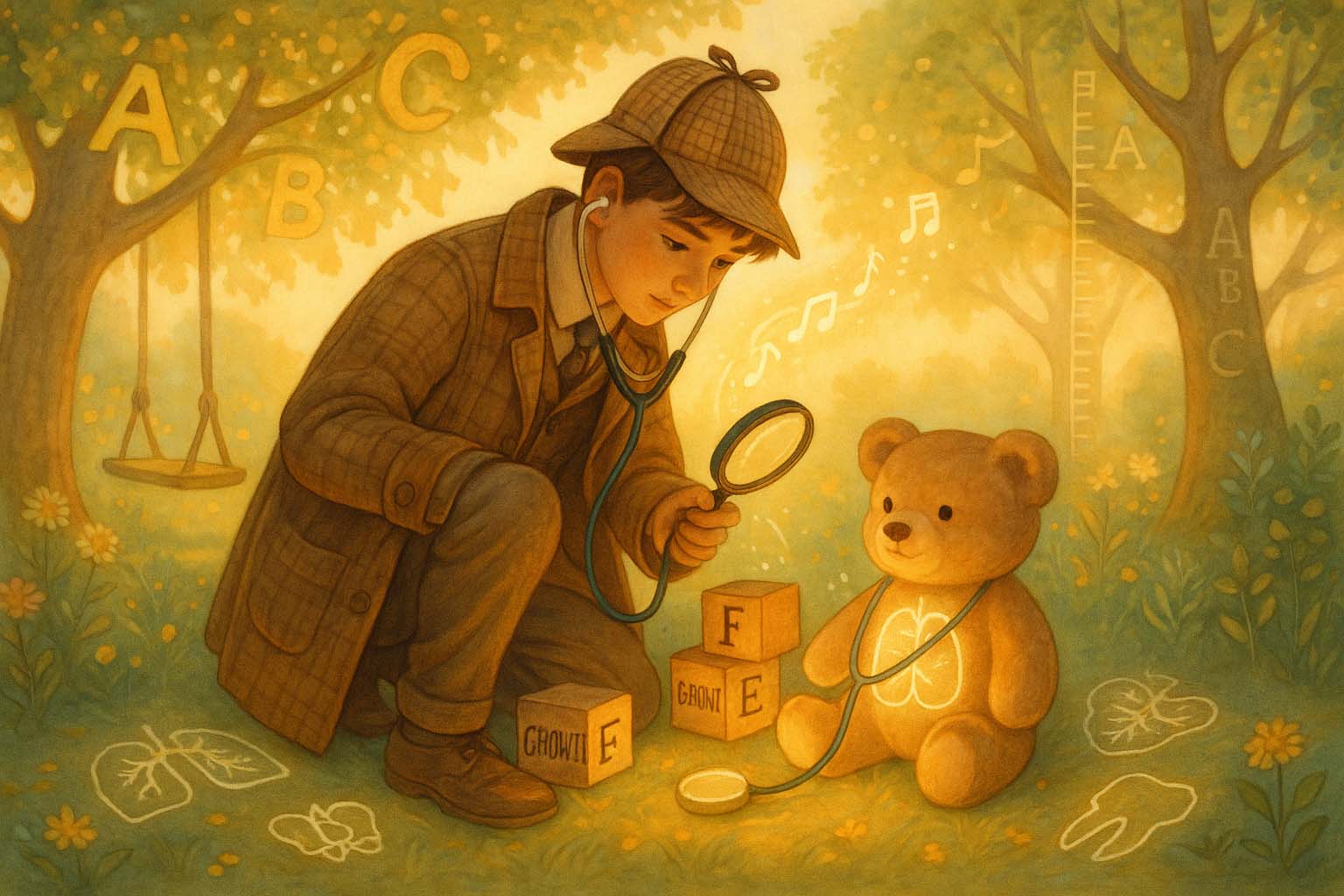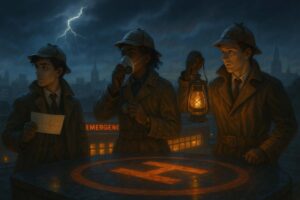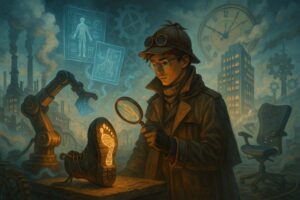
Paediatrics
- Posted by admin
- Categories Primary, Community & Continuity Care
- Date May 21, 2025
- Comments 0 comment
The Childhood Sleuth’s Domain – Cracking the Cases of Growth, Giggles, and Subtle Signs
1. Introduction: The Scene of the Specialty
Step into the shoes of a Paediatric sleuth.
In the ever-changing world of childhood, symptoms don’t read textbooks, and patients often speak in giggles, glances, or gentle tears. The Paediatrics detective must decode mysteries whispered through play, posture, and parental concern. Here, the body grows as fast as the clues evolve, and success is measured not only by diagnosis—but by trust, timing, and tenderness. Welcome to a world where every cough could be curiosity, or cause for concern.
2. Key Mysteries They Solve (Common Conditions)
These detectives specialise in solving cases involving:
- Respiratory Illnesses – from bronchiolitis to asthma, where wheeze and worry often collide.
- Developmental Delay – the chronic conundrum of milestones missed or misunderstood.
- Fever Without Focus – a classic misdirection that calls for calm and careful ruling-out.
- Childhood Infections & Rashes – a visual mystery tour through the skin’s storytelling.
Each case demands creativity, calm, and compassion—the triad of the true paediatric detective.
3. Their Trusted Tools & Techniques
Every detective has their kit—and in Paediatrics, tools may include:
- Observation as Investigation – watching a child play can reveal more than any lab.
- Tiny Tools for Tiny Clues – paediatric-sized equipment, growth charts, and immunisation records.
- Parental Interviews – every family holds vital clues, even in their fears and frustrations.
- Pattern-Based Reasoning – many diagnoses are clinical—built on recognition, not just results.
Paediatrics is equal parts art and science—where the gentle “how” matters as much as the medical “what.”
4. The Charms of This Field: Why It Captivates the Curious
- Pure Pattern Recognition: From congenital syndromes to common colds, the spectrum is rich and rewarding.
- Family-Centred Care: Build alliances with parents, siblings, and carers to solve the full mystery.
- Playful Presence: Diagnosis through delight—where stickers, smiles, and stethoscopes coexist.
- Preventative Power: Immunisation, early intervention, and health education that changes lives.
This is not just a specialty—it’s a calling to safeguard futures.
5. Challenges: The Toughest Cases They Face
- Nonverbal Clues – Infants and toddlers can’t explain their pain; you must interpret it.
- Emotional Vulnerability – When a child suffers, entire families hurt.
- Ethical Nuance – Balancing best interests, parental wishes, and emerging autonomy.
- Atypical Presentations – Kids often compensate well—until they suddenly don’t.
But the seasoned Paediatrician knows: big medicine sometimes comes in the smallest packages.
6. Famous Cases and Hallmark Clues
- The “Classic Presentation” – Croup: barking cough, stridor, and midnight worry.
- The “Zebra” – Kawasaki disease: rash, fever, and cardiac risk in disguise.
- The “Aha Moment” – Spotting autism through a subtle social disconnect in play.
7. Your Training Trail: How to Join the Investigation
To become a Paediatric detective:
- Start with a broad clinical foundation—then specialise in the nuances of early life.
- Learn the art of distraction and connection—sometimes your best exam tool is a toy.
- Practise patience: children aren’t just small adults—they’re unfolding stories.
- Study developmental milestones, child psychology, and the science of growth and nutrition.
Whether it’s a baby with a mystery rash or a teen with a hidden struggle, you’ll learn to listen between the lines of silence and squeals.
8. Final Words: The Signature of the Paediatric Detective
Paediatric detectives are protectors of possibility.
They work not just to cure the present, but to shape the future—one stitch, one smile, one solved case at a time.
In every patient, they see not just who the child is, but who they might become.
So if your heart leans toward laughter, learning, and layered clues in little lives—
then this is your field to flourish in.
You may also like

Emergency Medicine

Occupational Medicine

